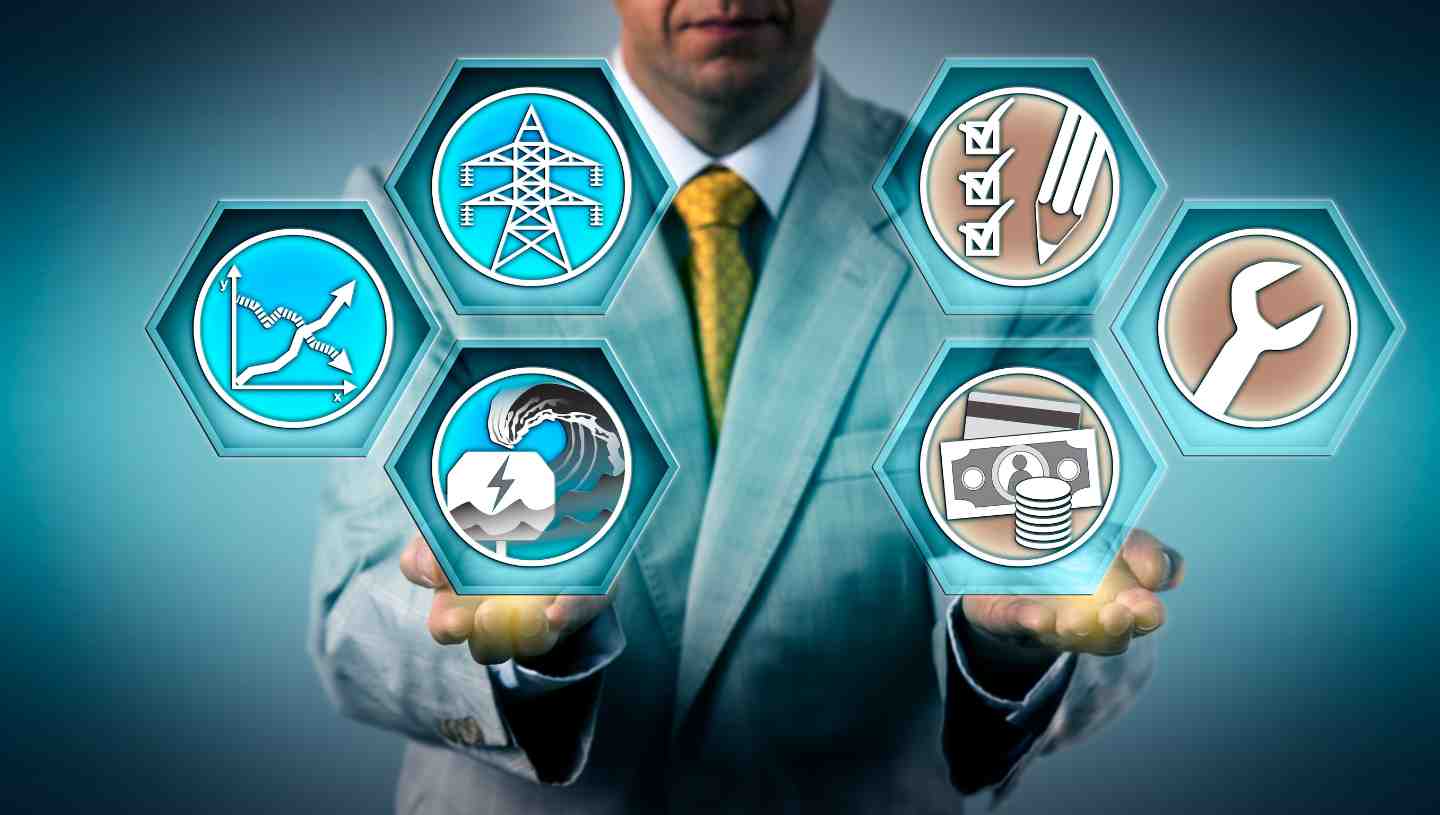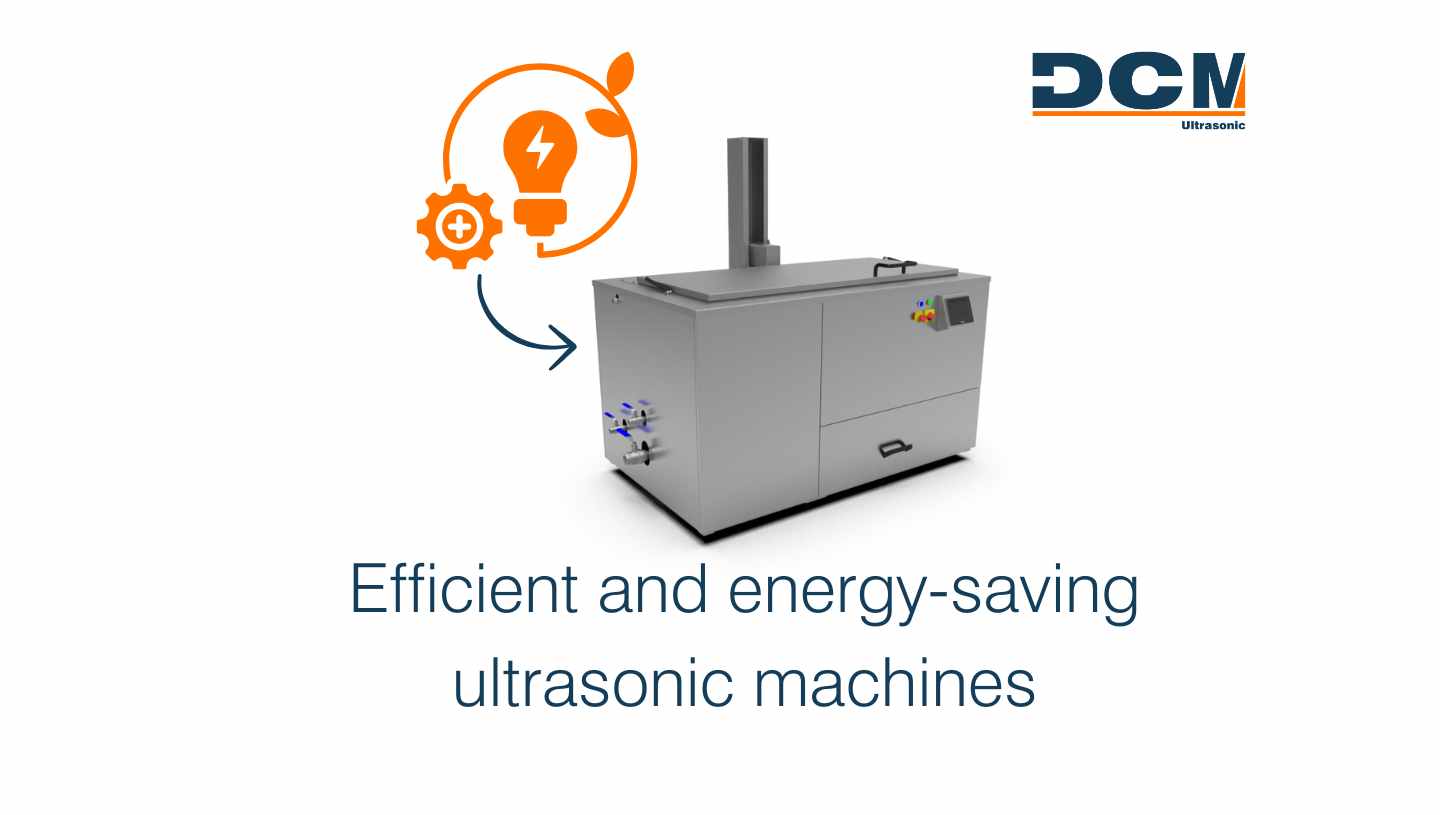Thu, 30 Jan 2025 16:17:22 +0100

This concept is applied in various industrial sectors to improve equipment performance, minimise environmental impact and reduce production costs. Some key energy efficiency indicators include:
Industry is one of the main consumers of energy worldwide. Improving energy efficiency in industrial processes has significant impacts on:

There are various technologies to optimize industrial cleaning with low energy consumption. Among them are:
Energy Efficiency in Ultrasonic Cleaning
Ultrasonic cleaning is based on the phenomenon of cavitation: the formation and collapse of bubbles in a liquid using high-frequency sound waves. This process generates mechanical energy that removes dirt, oils and contaminants adhering to surfaces. Some reasons why ultrasonic cleaning is energy efficient include:
At DCM Ultrasonic, we have developed technologies that optimize energy consumption without compromising cleaning quality. Some of our innovations include:
At DCM Ultrasonic, we are committed to innovation and sustainability, offering ultrasonic cleaning equipment designed to maximise energy efficiency without compromising process quality.
Choosing DCM Ultrasonic means choosing cutting-edge technology, sustainability and efficiency for a more responsible and profitable industrial future.

News
What is energy efficiency?
30 January de 2025
Energy efficiency is defined as the ability of a system to make the most of the energy consumed, minimising losses. In simple terms, it is about obtaining the same result with less energy expenditure.This concept is applied in various industrial sectors to improve equipment performance, minimise environmental impact and reduce production costs. Some key energy efficiency indicators include:
- Specific energy consumption (SEC): amount of energy used per unit of production.
- System efficiency: ratio between useful energy obtained and total energy consumed.
- Load factor: percentage of the nominal capacity of a piece of equipment that is actually used.
Importance of energy efficiency in industry
Industry is one of the main consumers of energy worldwide. Improving energy efficiency in industrial processes has significant impacts on:
- Reducing operating costs: energy consumption represents a major expense in production. More efficient equipment allows for lower costs per unit produced.
- Environmental sustainability: lower energy consumption reduces greenhouse gas emissions and dependence on fossil fuels.
- Regulatory compliance: many government regulations require improvements in energy efficiency to reduce the carbon footprint.
- Improved competitiveness: companies that adopt efficient technologies can offer more competitive prices and improve their environmental reputation.

Efficient technologies in the cleaning industry
There are various technologies to optimize industrial cleaning with low energy consumption. Among them are:
- High-pressure water jet cleaning: although effective, its water and energy consumption is high.
- Chemical cleaning: efficient in certain cases, but generates hazardous waste and high treatment costs.
- Ultrasonic cleaning: one of the most efficient technologies, as it combines cavitation and ultrasonic waves for deep cleaning with low energy consumption.
Energy Efficiency in Ultrasonic Cleaning
Ultrasonic cleaning is based on the phenomenon of cavitation: the formation and collapse of bubbles in a liquid using high-frequency sound waves. This process generates mechanical energy that removes dirt, oils and contaminants adhering to surfaces. Some reasons why ultrasonic cleaning is energy efficient include:
- Less use of chemicals: reduces the consumption of aggressive detergents.
- Low water consumption: compared to other industrial cleaning methods.
- Optimization of cleaning time: cycles are short, which reduces energy expenditure.
- Controlled temperature: does not require high temperatures to be effective, reducing the use of thermal energy.

Innovations in energy efficiency with DCM Ultrasonic
At DCM Ultrasonic, we have developed technologies that optimize energy consumption without compromising cleaning quality. Some of our innovations include:
- Digital ultrasonic generators: with variable frequency control to optimize energy performance.
- Filtering and recirculation systems: allow the cleaning liquid to be reused, reducing water and chemical consumption.
- AISI 316L stainless steel tanks: with efficient thermal design that minimises heat loss.
- Intelligent automation and programming: allows the power and cleaning time to be adjusted according to specific needs, avoiding energy waste.
At DCM Ultrasonic, we are committed to innovation and sustainability, offering ultrasonic cleaning equipment designed to maximise energy efficiency without compromising process quality.
Choosing DCM Ultrasonic means choosing cutting-edge technology, sustainability and efficiency for a more responsible and profitable industrial future.
